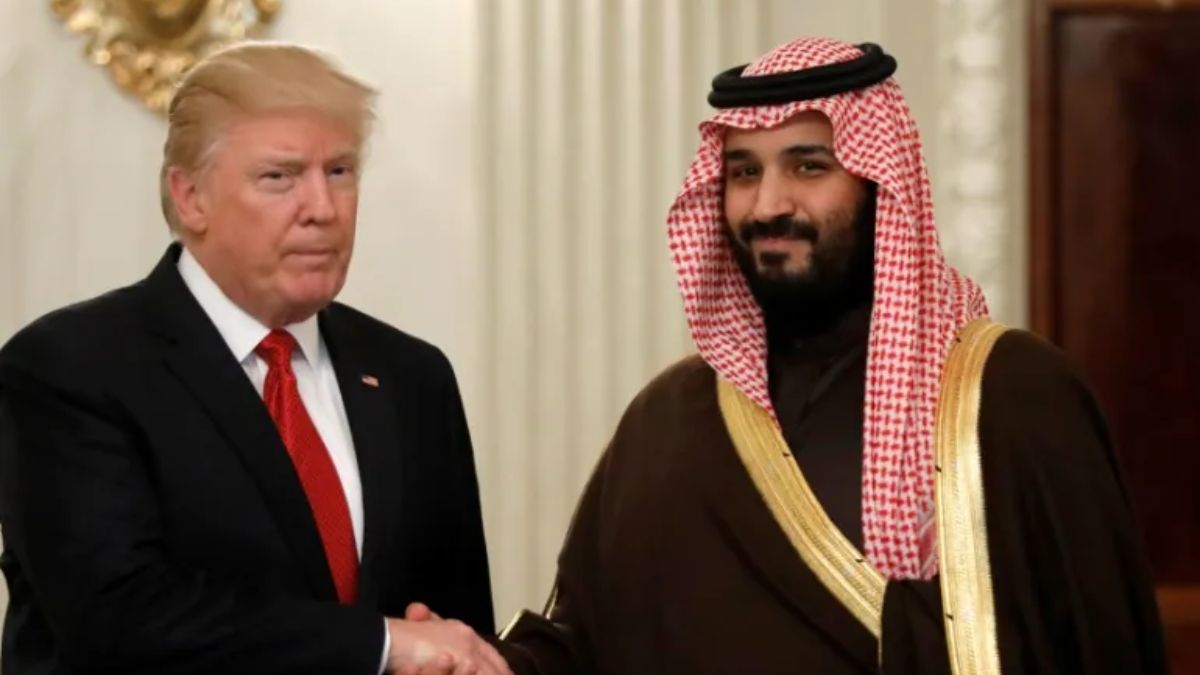Saudi Arabia is indicating to the United States that any move to normalise relations with Israel will come on Riyadh’s terms, highlighting the kingdom’s insistence on linking diplomatic recognition to concrete progress on Palestinian statehood. This posture comes ahead of Saudi Crown Prince Mohammed bin Salman’s highly anticipated visit to Washington later this month, his first since the 2018 killing of Washington Post journalist Jamal Khashoggi, an event that strained the kingdom’s relations with the United States.
Diplomatic red lines remain firm
While US President Donald Trump has publicly touted the prospect of Saudi Arabia joining the Abraham Accords, Riyadh has quietly conveyed that recognition of Israel cannot happen without a credible roadmap toward Palestinian sovereignty. The kingdom is seeking alignment on this issue before the White House talks on November 18 to avoid diplomatic missteps or confusion.
Jonathan Panikoff, former deputy US national intelligence officer on the West Asia and now with the Atlantic Council, noted, “MBS is not likely to entertain any possible formalising of ties in the near future without at least a credible pathway to a Palestinian state.” Panikoff said the Crown Prince is expected to press Trump for “more explicit and vocal buy-in” for Palestinian statehood during their discussions.
The move also reflects domestic considerations. Arab public opinion remains wary of Israel, particularly after its military campaign against Hamas in Gaza last year. Saudi officials, including Foreign Ministry official Manal Radwan, have emphasised conditions such as an Israeli withdrawal from Gaza, deployment of an international protection force and the restoration of Palestinian Authority governance in the territory as prerequisites for normalisation.
Defence and investment take centre stage
With progress on Israel-Palestinian issues slow, Riyadh is steering the Trump visit toward defence cooperation and investment. A key defence pact is expected to be signed, delineating US military support for Saudi Arabia and solidifying America’s strategic footprint in the Gulf. However, sources indicate that the deal is narrower than the full, Congress-ratified treaty Riyadh had previously sought and is modelled on the executive-order agreement with Qatar earlier this year.
The pact is designed to expand cooperation in technology and defence, with provisions allowing future US administrations to elevate it to a full treaty. Analysts describe it as a “stepping stone,” with potential for expansion if normalisation with Israel advances.
Impact Shorts
More ShortsShifting regional calculus
The urgency for a NATO-style treaty has diminished as Iran’s threat recedes. Israeli strikes on Iranian nuclear and military sites, coupled with setbacks for Tehran-backed groups including Hezbollah, Hamas and the Houthis have reduced Saudi Arabia’s perceived need for a binding congressional treaty.
The current agreement is also expected to include safeguards limiting Saudi ties with China in defence and technology sectors, allowing Riyadh to maintain strategic autonomy while deepening cooperation with Washington. It will fast-track advanced US weapons sales, circumventing bureaucratic delays that have stalled previous deals.
The strategic equation
Saudi Arabia’s approach illustrates a careful balancing act: safeguarding national security while maintaining leverage on the Palestinian issue. Trump’s public optimism on rapid normalisation contrasts with Riyadh’s insistence on conditions, highlighting the complex diplomatic equation in the region.
Observers note that the outcome of these talks could reshape the West Asia’s political and security dynamics, influencing US influence in the region, Israeli-Palestinian negotiations and broader Gulf dynamics. For now, Saudi Arabia appears intent on consolidating its strategic gains while keeping the possibility of Israel normalisation contingent on tangible progress on the Palestinian front.
With inputs from agencies
)